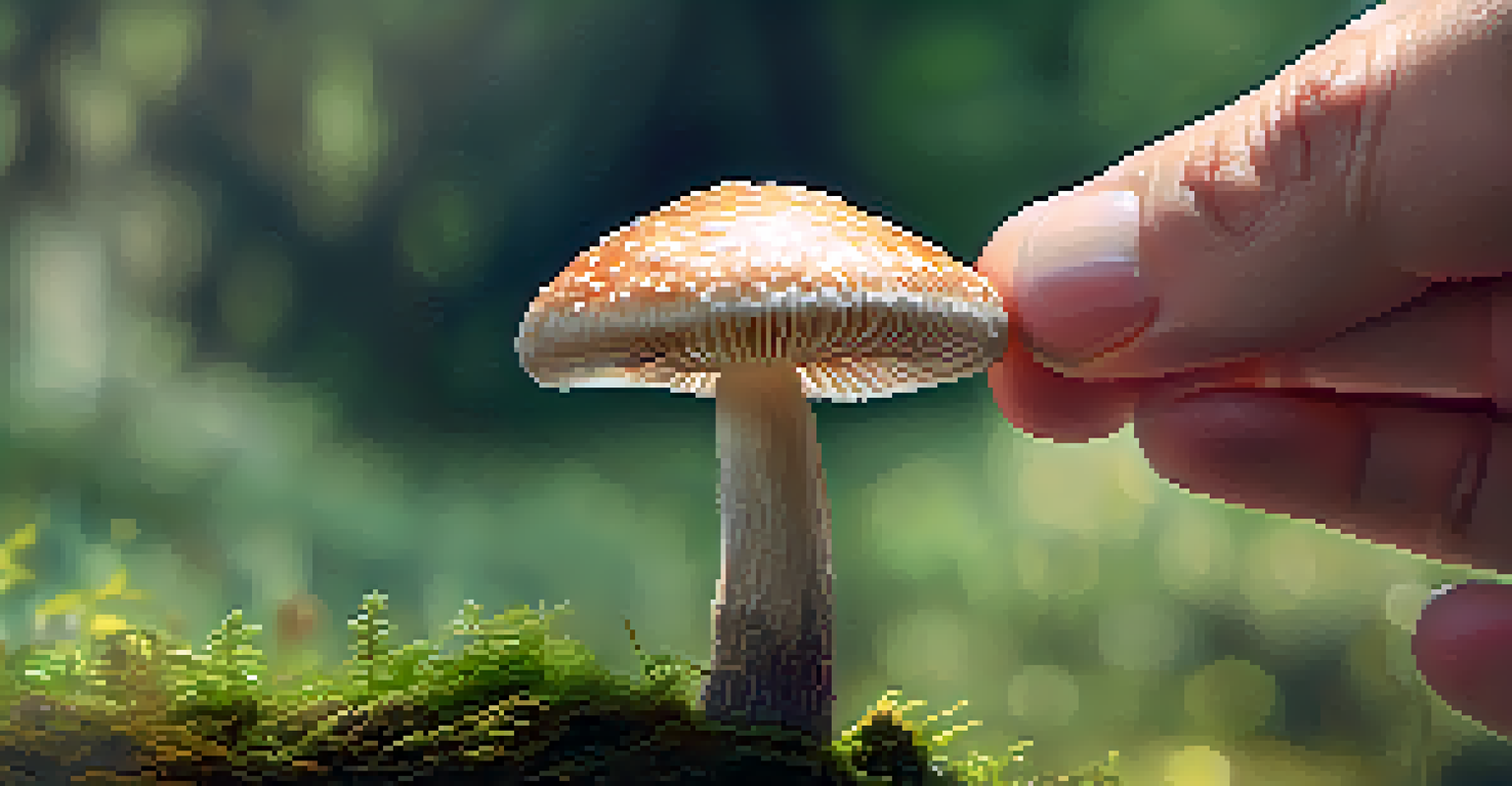Psychedelics as Coping Mechanisms for Emotional Distress

Understanding Emotional Distress and Its Impact
Emotional distress can feel like a heavy weight on your shoulders, making everyday life challenging. It often manifests as anxiety, depression, or overwhelming stress, affecting both mental and physical health. Many people seek relief through various forms of therapy, medication, or lifestyle changes, but these options don’t work for everyone.
Psychedelics offer a unique opportunity for individuals to confront their emotional distress in a profound way, potentially leading to healing and transformation.
This is where the conversation around psychedelics comes in. Substances like psilocybin (found in magic mushrooms) and LSD have gained attention for their unique effects on the brain. They’re thought to facilitate deep emotional processing, making them potential tools for addressing emotional distress.
By understanding how these substances interact with our emotions, we can explore their role as alternative coping mechanisms. This journey into the realm of psychedelics opens up new avenues for healing, especially for those who have struggled to find relief through conventional methods.
The Science Behind Psychedelics and Emotional Healing
Research suggests that psychedelics can promote neuroplasticity, which is the brain's ability to reorganize itself. This characteristic allows individuals to break free from rigid thought patterns that often accompany emotional distress. In essence, psychedelics may help reset our emotional responses, offering a fresh perspective on our challenges.

Studies have indicated that psychedelics can lead to profound experiences of interconnectedness and empathy. For individuals grappling with feelings of isolation or despair, these experiences can foster a sense of belonging and understanding. It’s like turning on a light in a dark room, illuminating paths to healing that were previously unseen.
Psychedelics Offer Emotional Relief
Substances like psilocybin and LSD may provide alternative coping mechanisms for individuals struggling with emotional distress.
Moreover, the therapeutic setting in which psychedelics are administered can enhance their positive effects. Guided sessions with trained professionals can help individuals navigate their emotional landscapes, making the experience both safe and enriching.
Personal Stories: Psychedelics in Action
Many individuals have shared transformative experiences with psychedelics that shifted their perspectives on life. Take the story of Sarah, who struggled with anxiety for years. After participating in a guided psilocybin session, she found herself confronting deep-seated fears, leading to breakthroughs that traditional therapy couldn't provide.
The journey inward, facilitated by psychedelics, can illuminate the darkest corners of our minds, helping us understand and heal from emotional pain.
These personal narratives highlight the potential of psychedelics as tools for emotional healing. People often describe feelings of liberation and clarity, as if a fog had lifted. By hearing these stories, others may feel inspired to explore similar paths toward healing.
However, it's essential to approach these stories with a balanced perspective. While they can be compelling, not every experience is positive, and outcomes can vary greatly based on individual circumstances and settings.
The Role of Set and Setting in Psychedelic Experiences
The concept of 'set and setting' is crucial when discussing psychedelics. 'Set' refers to the mindset of the individual, while 'setting' pertains to the physical and social environment in which the experience takes place. Both factors significantly influence the outcomes of psychedelic experiences.
For someone seeking emotional healing, a supportive, safe environment can enhance the positive effects of psychedelics. This might include being surrounded by compassionate guides or friends who understand the journey. Creating a conducive space is akin to laying a solid foundation for a house—without it, the structure risks collapsing.
Set and Setting Matter
The mindset and environment in which psychedelics are used significantly influence their therapeutic outcomes.
Conversely, a negative mindset or an unsafe setting can lead to challenging experiences. It's vital for individuals to prepare mentally and choose their surroundings wisely, ensuring they have the best chance for a beneficial experience.
Therapeutic Approaches: Integrating Psychedelics into Healing
Integrating psychedelics into therapeutic practices is gaining momentum in mental health fields. Therapists are beginning to explore how these substances can complement traditional therapies, offering a more holistic approach to emotional distress. Imagine combining the insights gained during a psychedelic experience with the strategies learned in talk therapy.
This integration can help individuals articulate and process their experiences more effectively. It’s like having a roadmap that guides you through the emotional terrain you’ve just traversed. With the right support, the lessons learned during a psychedelic experience can lead to lasting change.
However, this approach requires careful consideration and professionalism. As the legal landscape shifts, it’s crucial for practitioners to stay informed and adhere to ethical guidelines while exploring these innovative treatments.
Potential Risks and Ethical Considerations
While the potential benefits of psychedelics are promising, it's essential to acknowledge the risks involved. Not everyone is suited for psychedelic experiences, especially those with certain mental health conditions. Understanding these risks is vital to prevent adverse effects that could exacerbate emotional distress.
Ethical considerations also play a significant role in the conversation around psychedelics. As interest grows, issues of accessibility, informed consent, and the potential for misuse come to the forefront. It’s important to ensure that individuals seeking help are doing so in a safe, informed manner.
Future of Psychedelics in Therapy
Ongoing research and acceptance in the medical community suggest a promising future for psychedelics as part of mental health treatment.
Balancing the excitement of new therapeutic approaches with caution and responsibility is key. By doing so, we can create an environment where psychedelics are used beneficially and ethically.
The Future of Psychedelics in Mental Health Treatment
The future of psychedelics in mental health treatment looks bright, with ongoing research and growing acceptance in the medical community. As more studies demonstrate their efficacy in treating emotional distress, we may see more clinicians incorporating them into their practices. This shift could signify a new era in mental health care, where alternative therapies are embraced alongside traditional methods.
Imagine a world where individuals have access to a wider range of therapeutic options, tailored to their unique needs. This could lead to more personalized care, fostering a deeper understanding of mental health and emotional resilience.

As we continue to explore the potential of psychedelics, it's crucial to remain informed and engaged in the conversation. The more we learn, the better equipped we are to navigate this evolving landscape and advocate for responsible, compassionate care.